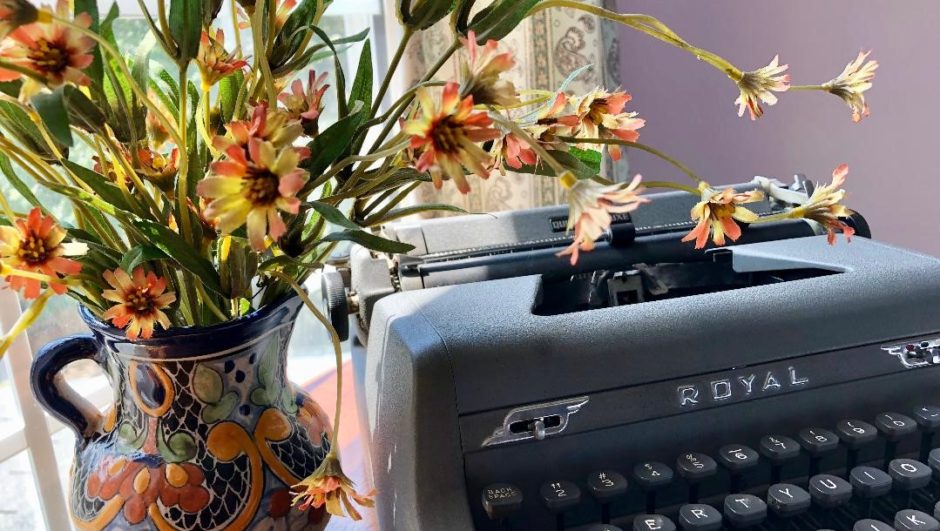
As people age, they often comment on their aches and pains.
What magic would have to occur in your life to live past 100, joyful every day? Would that even be possible if you had lost almost all your family during the Holocaust and had been imprisoned for over two years in a Nazi concentration camp?
Alice Herz-Sommer lived to the age of 110, dying just a week before Lady in Number Six, won the Academy Award for best documentary of 2014. It was the story of her incredible life.
Would Alice have been impressed with the award? I’m not sure. She would have been pleased, but she derived her endless joy in life from her music.
Born in 1903 in Prague (Czechoslovakia), which was then still a part of the Austro-Hungarian Empire, Alice grew up in a cultured Jewish family where music was revered. She started piano lessons at the age of five and became one of the best-known pianists in Prague.
March 1939, saw Hitler’s army invade and occupy Czechoslovakia, forcing Jewish residents to relocate inside the Prague ghetto. The Jews were forced to sign away their businesses and their belongings. The Nazi’s confiscated their radios, even the family pets. Alice’s family learned to subsist under Nazi rule.
But then in 1942, as Alice stood by her side, her mother was deported to a camp. Alice channeled her sorrow by studying Chopin’s 24 Etudes, the most technically demanding piano pieces she had ever attempted.
Those Etudes would later save her life.
Three years later when Alice was 39, she, her husband and young son, were all sent to Theresienstadt. Her husband was then transferred to Auschwitz, where he died. While in Theresienstadt, Alice became part of the camp’s orchestra.
For the Nazi’s, the musical concerts were pure entertainment. For the prisoners, the music was their only form of moral support. Alice began to play Chopin’s Etudes from memory—smart enough to realize that if the Nazi’s wanted to hear her music, she would be kept alive. During her two-year imprisonment, Alice performed in over 100 concerts.
Day in and day out she played the piano. At night she slept side by side on a thin mattress with her young son Rafi, murmuring to him that they would be all right.
Theresienstadt was liberated in 1947. While approximately 35,000 prisoners had been murdered at Theresienstadt, including 15,000 children—Alice and Rafi were rescued. With no family left, they moved to Israel. Alice took a job teaching at the Jerusalem Academy of Music and held that position for the next 37 years.
In 1986, Rafi, now an accomplished cellist, decided to move to London for a job opportunity; Alice moved with him. At the age of 86, she took a one-room apartment, No. 6, in north London, and continued to do what she loved most–
She played for three hours a day, every day, up until the age of 109. Her reputation grew, and people lined up in front of her building at 10 a.m. every morning to listen to the strains of classical music float out her window.
I watched a documentary about
Here are some of my favorite quotes from the documentary:
“Life should never be taken for granted.”
“What matters most in life…is life itself.”
“Every day, life is beautiful.”
“Even now, I am still full of joy.”
Strong women come from every corner of the globe, but all have the connecting element of passion.
Thank you to Joy Westfall who sent me an email saying I had to look into the story of Alice Sommer. I am so glad I did!
If you enjoyed this month’s blog, please sign up on the right sidebar to become a follower. Join with 800 other readers who believe that strong women’s stories deserve to be told.
You can also catch me on Twitter @LHsittig, my author Facebook page at Linda Harris Sittig, and my website LindaSittig.com where you can learn about my journey in becoming a writer.
Here is the link to my two novels featuring strong female protagonists:
Cut From Strong Cloth https: //www.amzn.com/1940553024.
Last Curtain Call https://www.amzn.com/1940553067.
~ Linda

One of your best pieces so far. Loved this post! Thank you, Linda!
Thank you, Madhu. Alice lived during extraordinary times, yet kept her faith in human kindness. I found her story so compelling!
Thank you for bringing us so many stories of women who should never be forgotten.
Thanks, Dixie. I agree that there are so many wonderful stories out there of women who deserve to be remembered!
Thanks again, Linda, for bringing us so many stories of women who should never be forgotten.
Fascinating. Would love to watch this documentary.
Sandra, I found it for free on Vimeo. It is only 39 minutes long but so worth watching!
What a great story! Thank you for sharing.
Thanks, Laurie. I love researching and then sharing the stories of remarkable women!
This has to be the most amazing story of a strong woman ever. Thanks so much for sharing it.
Thanks, Darlene, her story just amazed me!
I know, Darlene! Her story captivated me.!
Thanks for this story, Linda. I love thinking that she was freed the year we were born!
Barbara, I know! I thought of that instantly:)
Wonderful story of how her life was a monument to the power of music. It helped her and the others in the orchestra survive their darkest days and continued to bring peace and joy to all the people she knew and especially to her own soul. Thank you.
You are welcome, Karen. I am trying to learn to appreciate the peacefulness of listening to classical music. When I do, I think of Alice.